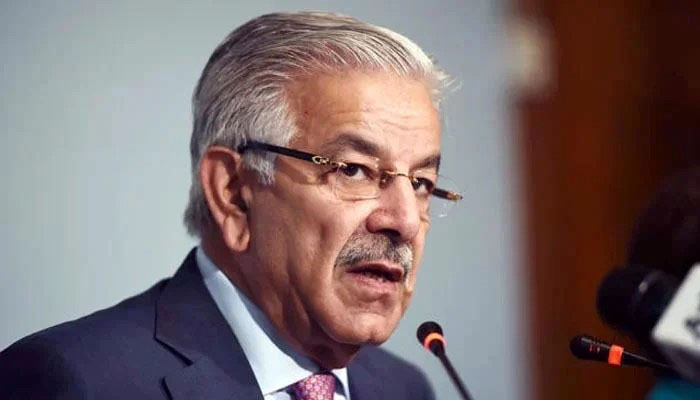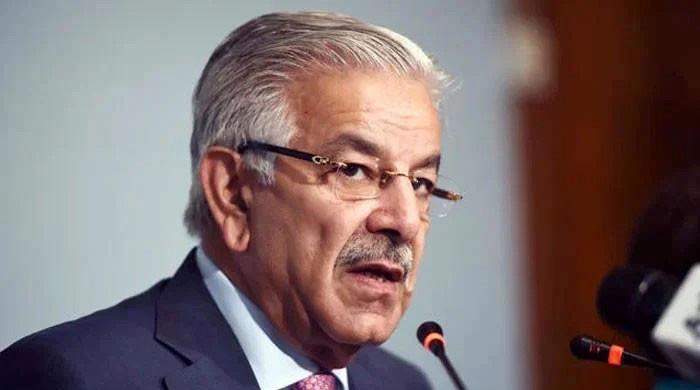“We have to defend our country, and these checkpoints are a threat to our security,” the defence minister said.

- Without a valid passport and visa, travellers from Afghanistan will not be allowed to enter Pakistan.
- Governments are trying to stop threats from entering and prevent potential breaches.
- Currently, all terrorism is coming from Afghan territory, from Asif.
In a major policy shift, Pakistan has decided to strictly enforce international law on its border with Afghanistan to curb the inflow of militants and contraband, Defense Minister Khawaja Asif said on Thursday.
The government aims to curb economic losses caused by smuggling of oil, fertiliser and other supplies from Afghanistan to Pakistan as well as to stop terrorist infiltration, avert potential violations and conduct security checks at the border.
“All traffic from Afghanistan will be allowed to enter Pakistan only if they have valid passports and visas,” Asif said. GeoNewsThis signals an end to the long-standing practice of Afghans entering Pakistan without proper documentation.
The statement comes as Pakistan has seen a surge in cross-border attacks on security forces in recent months, with militants using sophisticated weapons and equipment.
Islamabad has repeatedly urged the Afghan interim government to prevent the Tehreek-i-Taliban Pakistan (TTP) and other militant organisations from using Afghan territory to launch attacks against Pakistan.
“We have to keep our country safe and these checkpoints are threatening our security,” the defence minister said during a meeting today.
He also noted that after the withdrawal of US troops from Afghanistan, there has been a surge in terrorism, with most of the incidents originating from Afghanistan’s territory. “Today, all terrorism is coming from Afghan soil,” he said.
Asif said formal borders, where passports are required for crossing, are standard practice worldwide, and noted that despite repeated requests from Pakistan for cooperation, Kabul has yet to provide an adequate response.
“The borders with China, Iran and India operate under strict regulations and the same should be true in Afghanistan,” he asserted.
Replying to a question, Asif said he was aware of the fact that there are families on both sides of the Pakistan-Afghanistan border. Justifying the decision to implement visa and passport restrictions, he likened it to the families that have been torn apart in Kashmir since the partition of the Indian subcontinent.
Referring to other divided borders, Asif said similar issues exist at the Sialkot border with India and along the labour border where families are being torn apart.
Responding to recent remarks made by Jamiat Ulama-e-Islam Fazlul Rehman (JUI-F) chief Maulana Fazlur Rehman, Asif said while expressing respect, he did not agree with the Maulana’s remarks regarding China.
“I accompanied Prime Minister Sharif on his visit to China and was present at his meetings with the Chinese President and Premier. China’s commitment to cooperation with Pakistan is clear,” Asif said, making it clear that no one should doubt it.
“I believe that Maulana [Fazl] He hasn’t had any talks with diplomats recently. [Fazl] “He has misunderstood and we are ready to provide him with complete information regarding China’s cooperation and assurances,” Asif added.
Asif termed the prime minister’s visit to China as a success and said the revival of the China-Pakistan Economic Corridor (CPEC) was a testimony of Beijing’s commitment.
“Though there are strategic matters which cannot be made public, the Prime Minister’s recent visit to Beijing has further strengthened friendly ties between Pakistan and China,” Asif concluded.

